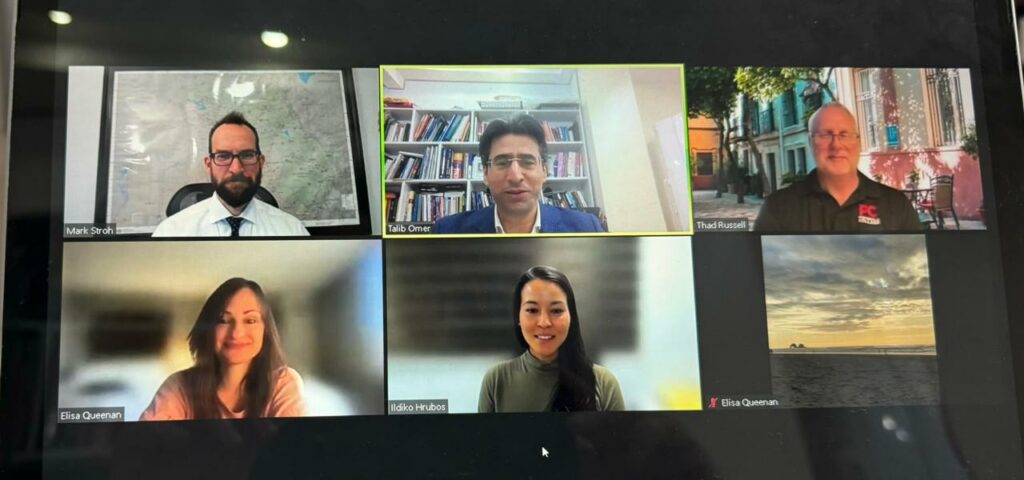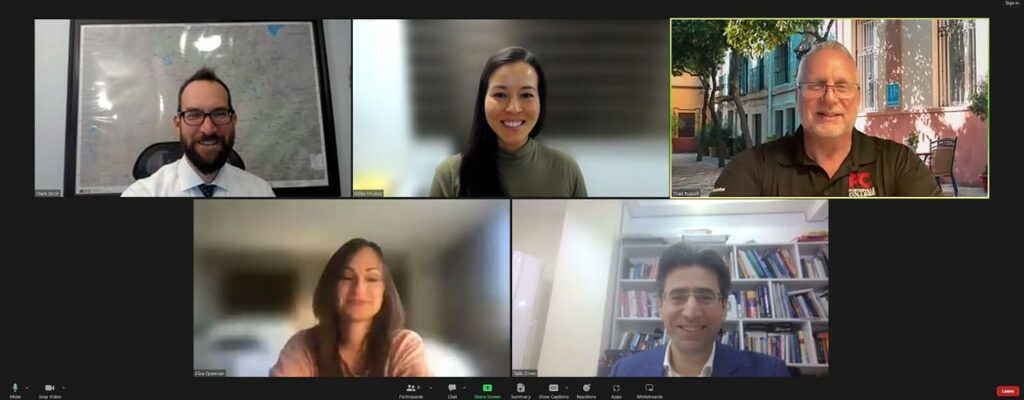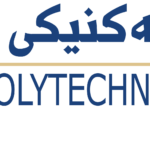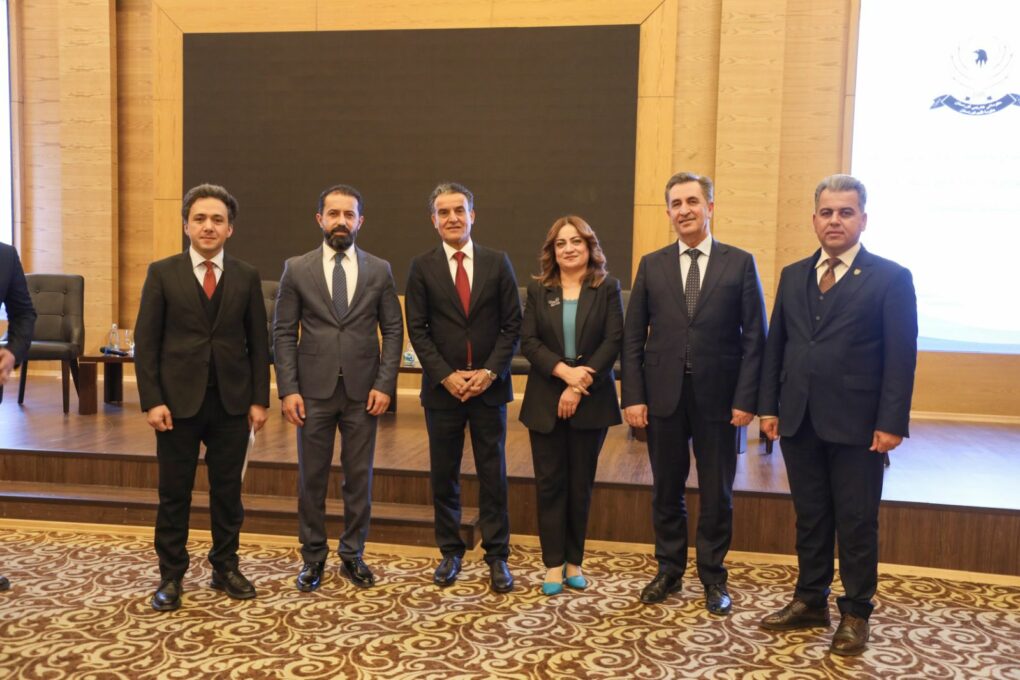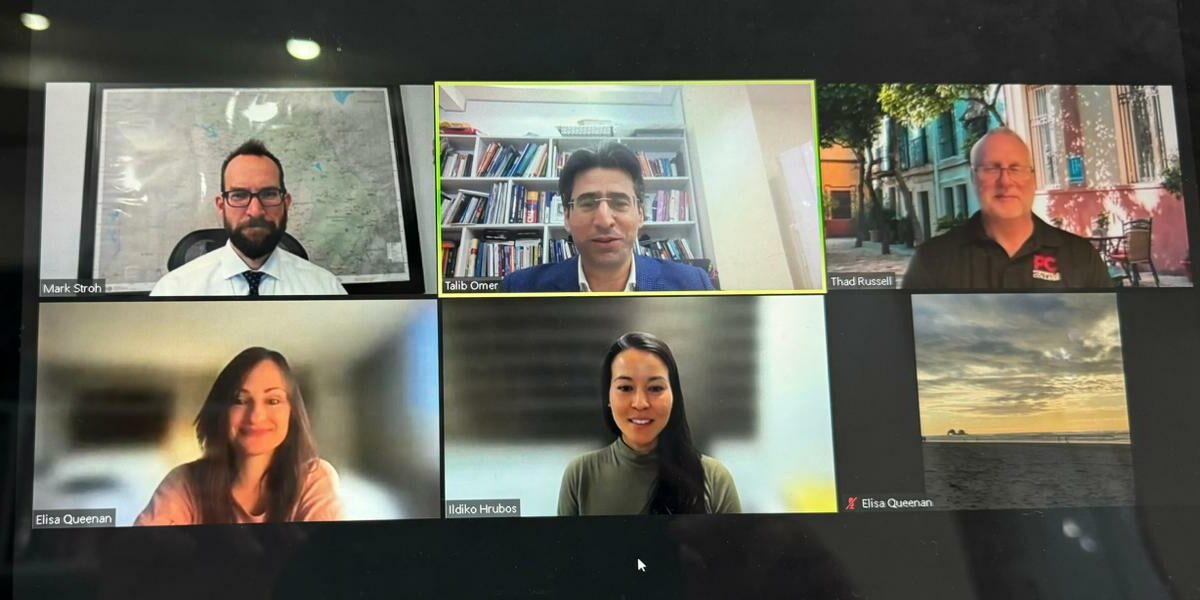- Azad Abdullah Ameen
- azad.ameen@charmouniversity.org
- +9647721068874
- Metaheuristic Optimazation Algorithms in Applied Science and Engineering Applications
-
The objective of this study is to delineate the challenges associated with addressing complex optimization issues, with a specific focus on metaheuristic algorithms. A comprehensive investigation was undertaken to explore the principles and categories of these algorithms to gain a deeper understanding of the issues they present and develop effective strategies to overcome them. To challenge these issues, the study explores metaheuristic algorithms, which are known for their effectiveness in solving such problems. However, these algorithms often struggle with getting stuck in local optima and maintaining a balance between exploration and exploitation. Additionally, they exhibit poor searchability and exploitation performance.
To address these challenges, this research work introduces three different algorithms: a modified version of child drawing development optimization MCDDO, a hybrid algorithm combining child drawing development optimization with harmony search CDDO-HS, and a novel metaheuristic called the social psychology interaction behavior algorithm SPIBA, inspired by human social psychology interactions.
The performance of these algorithms is evaluated using various benchmark test functions, including classical and CEC-C06 2019 benchmark functions. Statistical methods, such as ranking and the Wilcoxon rank-sum test, are used to compare the results of these algorithms with the original algorithms, CDDO, HS, and other popular algorithms.
In the beginning, two different approaches were proposed, namely MCDDO and CDDO-HS. The main objective of both techniques is to overcome the issues that the CDDO faces. The CDDO is an example of a human-based metaheuristic approach that may encounter challenges such as getting trapped in local optima, demonstrating suboptimal performance in the exploration phase, and experiencing stagnation in the nearest optimal solution.
The first proposed MCDDO incorporates four key mechanisms: iterative pattern memory PM updating during the exploitation phase, where new experiences are compared with the child's current drawings; a change in the primary rule employed during the exploitation phase; parameter tuning to strike a balance between exploration and exploitation phases; and preservation of the best solution obtained in each iteration and comparing new solutions with the best solution during the exploration phase. Following the completion of the evaluation, the statistical findings indicate a consistent superiority of the proposed approach over standard algorithms, as evident in both average and p-value results. Specifically, out of the nineteen classical test functions and ten CEC-2019 benchmark test functions, the proposed approach demonstrated better performance in thirteen and nine instances, respectively. These results were then compared with those obtained from the JAYA, SCA, ChOA, DA, GPSO, and BOA algorithms. The comparative analysis confirmed that the proposed approach outperformed all other metaheuristic algorithms in four out of the ten CEC-2019 benchmark test functions.
The second proposed method, CDDO-HS, represents a hybridization between CDDO and HS and integrates two crucial mechanisms. Firstly, it relocates the PM to the algorithm's core, updating it with each iteration using the HS algorithm. Secondly, it establishes the PM size at 80% of the overall population, aiming for optimal exploration. After the evaluation, the statistical results reveal that the hybridization approach consistently outperforms standard algorithms in both average and p-value outcomes. Specifically, in comparison with CDDO, it achieves better results in eleven out of nineteen classical test functions and all functions from the CEC-2019 benchmark. When compared with HS, the hybrid approach excels in sixteen out of nineteen classical test functions and seven out of ten CEC-2019 benchmark test functions. These results were then pitted against the ChOA, BOA, FOX, GWO-WOA, WOA-BAT, and DCSO algorithms. The study proved beyond a reasonable doubt that the suggested method is better than all other metaheuristic algorithms in six of the ten CEC-2019 test functions.
In the subsequent phase, SPIBA, an innovative metaheuristic optimization algorithm inspired by social psychology interaction behavior and social interaction—processes involving the stimulus or response of two or more individuals—was developed. These fundamental ideas have been easily incorporated into SPIBA's core, which operates as a single-object and population-based algorithm. SPIBA's performance was compared to that of the ChOA, BOA, FOX, GWO-WOA, WOA-BAT, and DCSO algorithms. The exploration and convergence measures were utilized to assess its success. Their analytical results definitively indicated that the proposed approach beat all other metaheuristic algorithms in six of ten CEC-2019 benchmark test functions.
Additionally, SPIBA was applied to equipment real-world engineering and applied science challenges, specifically in pressure vessel design and the analysis of the pathological IgG fraction in the nervous system. When working in pressure vessel design and compared with eight other algorithms—WOA, GWO, FDO, CFDO, WOAGWO, KMGWO, RFSO, and MFDO—SPIBA appeared as the top-performing algorithm. It showed an average solution quality of 6.01E-05 and the lowest standard deviation of 2.00E-04, guaranteeing the ahead position. In the context of the "Nervous System's Pathological IgG Fraction" application problem, a comparison between SPIBA and Leo revealed a significant improvement in the proposed algorithm's performance.
- Erbil Technical Engineering College
- Information Systems Engineering
- AI-Optimization
On behalf of the Council of Erbil Technical College, we warmly congratulate the Kurdistan Students Union and the Democratic Youth Union of Kurdistan on the occasion of the 71st anniversary of their founding.
The two organizations played a major role in shaping the future of Kurdistan. The Kurdistan Students Union has been a beacon of knowledge and activity, strengthening young minds and igniting their passion for learning and participation. On the other hand, the Kurdistan Democratic Youth Union supported the rights and aspirations of young people, and called for their voices to be heard and their capabilities to be realized.
Your steadfast commitment to the development of the Kurdish community is truly commendable. Through your tireless efforts, you have raised generations of leaders, intellectuals, and engaged citizens who continue to contribute positively to their communities and the region as a whole.
As you celebrate this important anniversary, I implore you to remain steadfast in your mission and vision. We hope that your organizations will continue to grow and develop in the coming years, to achieve a brighter future for Kurdistan and its youth.
Once again, we congratulate you on this important occasion.
BD Iyad Zaki Saber Agha
Chairman of the Council of Erbil Technical College
February 17,
On Monday, the 26th of February, 2024, Prof. Dr. Edrees Muhamad Tahir Harki, the Rector of the Erbil Polytechnic University, led a delegation to participate in the “Roadmap Meeting to Combat Drugs and Psychological Effects” arranged by the Ministry of Higher Education and Scientific Research.
In the meeting session, the minister of Higher Education and Scientific Research, the Deputy Minister of Higher Education and Scientific Research, and several presidents of public and private universities, members of the High Committee to Fight Drugs, consultants, general directors, teachers, researchers, lawyers and experts.
The delegation of the Erbil Polytechnic University consisted of Asst. Prof. Yousef Mustafa Rasul, the Vice Rector for Student Affairs; Dr. Hataw Karim, and Dr. Ali Abdullah Saleh, academic staff of our University, Mr. Sarmand Nasraddin, the Administrative Director of the University Presidency and also an activist in the field of fighting drugs.
After reading several speeches, the agenda of the meeting started. For this purpose, two panels were held by Dr. Sabah Ibrahim Wais, the consultant of the Minister of Higher Education; Dr. Khatab Ahmad Mustafa, the Director of Education, Planning and Monitoring, the researchers and experts in the field discussed different aspects of drugs and expressed different opinions on how to set the roadmap of the Ministry of Higher Education and Scientific Research to combat drugs and psychotropic substances.
The Ministry of Higher Education and Scientific Research of the Kurdistan Regional Government, has a major role in spreading awareness, capacity building, research and development, integrating drug issues into curricula, scientific use of media, social media and technology, as well as activating student counseling centers in universities to combat drugs and psychotropic substances. A special high committee has been formed with the participation of representatives of all ministries.
In this context, Erbil Polytechnic University has actively participated in the drafting of the roadmap to combat drugs, which is supervised by the Ministry of Higher Education and Scientific Research.
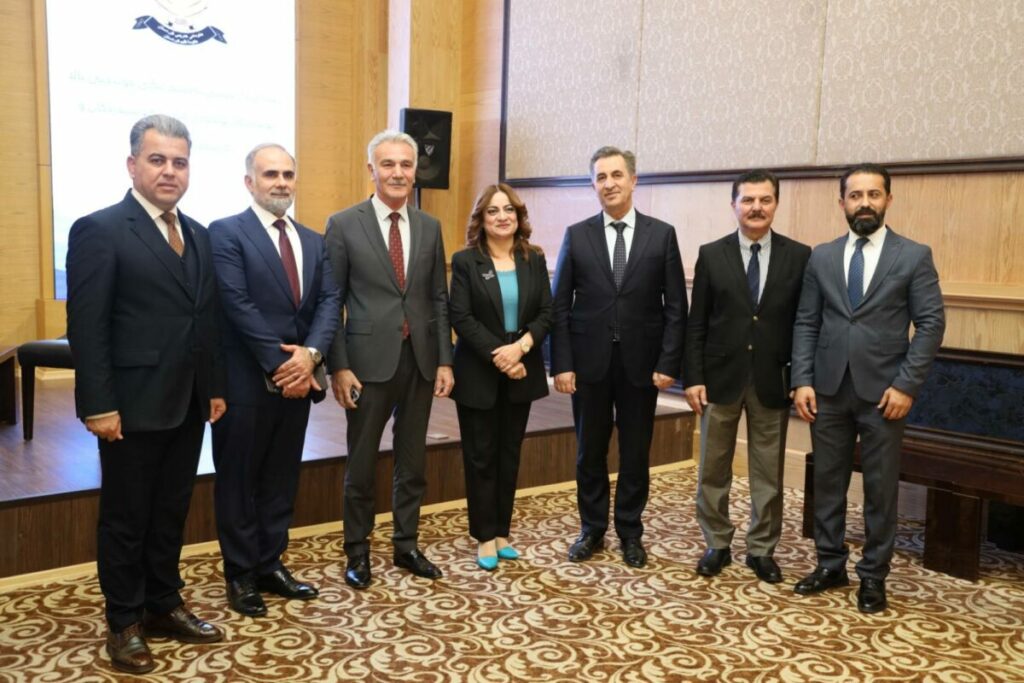
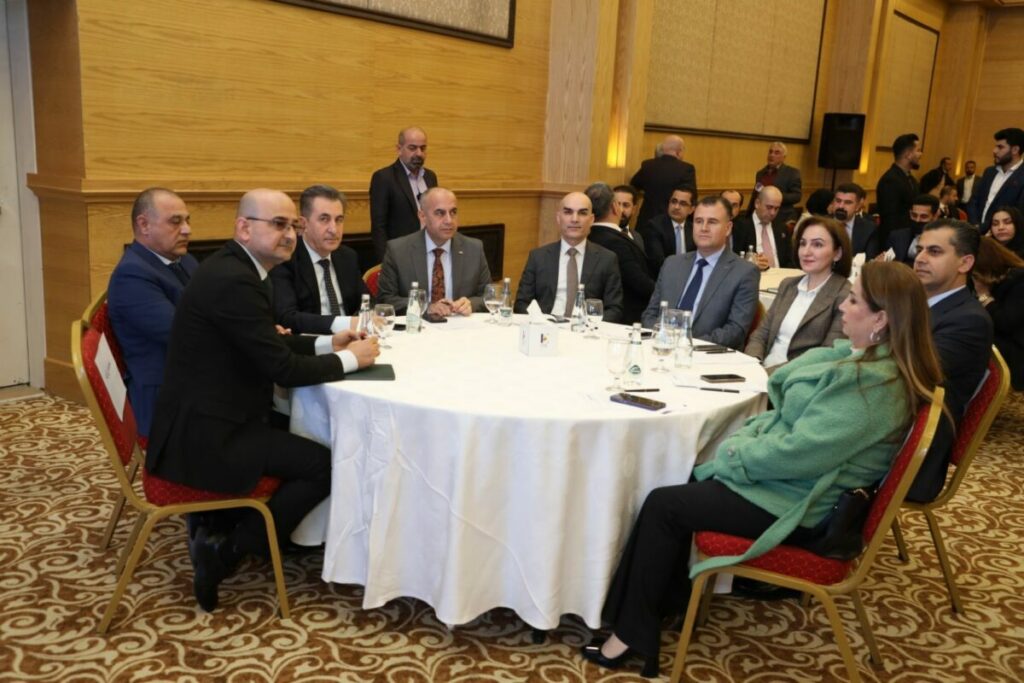
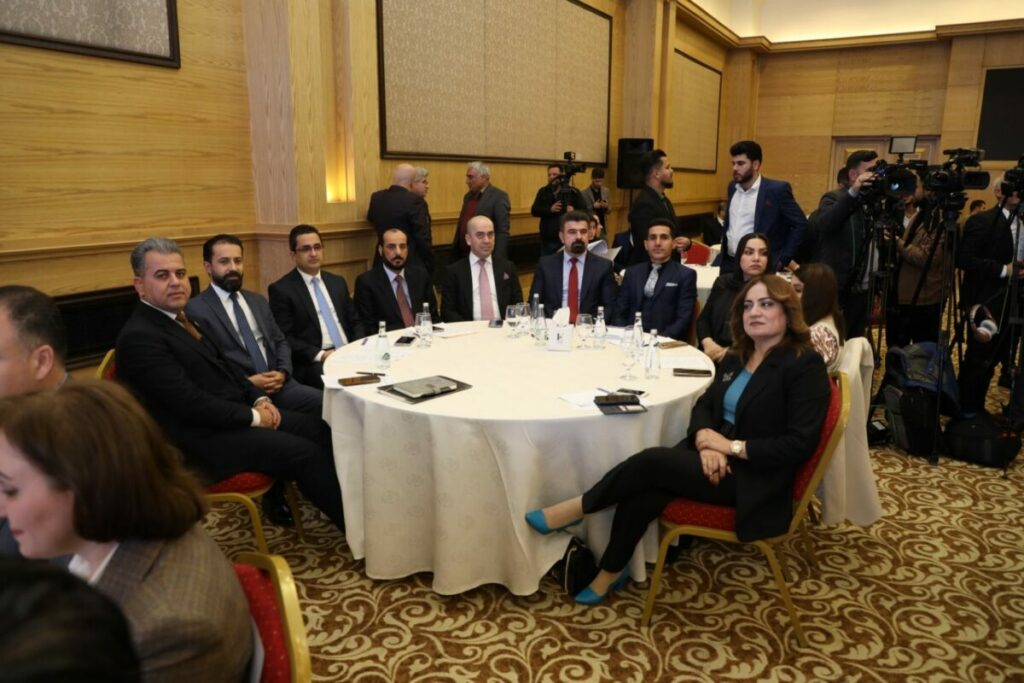
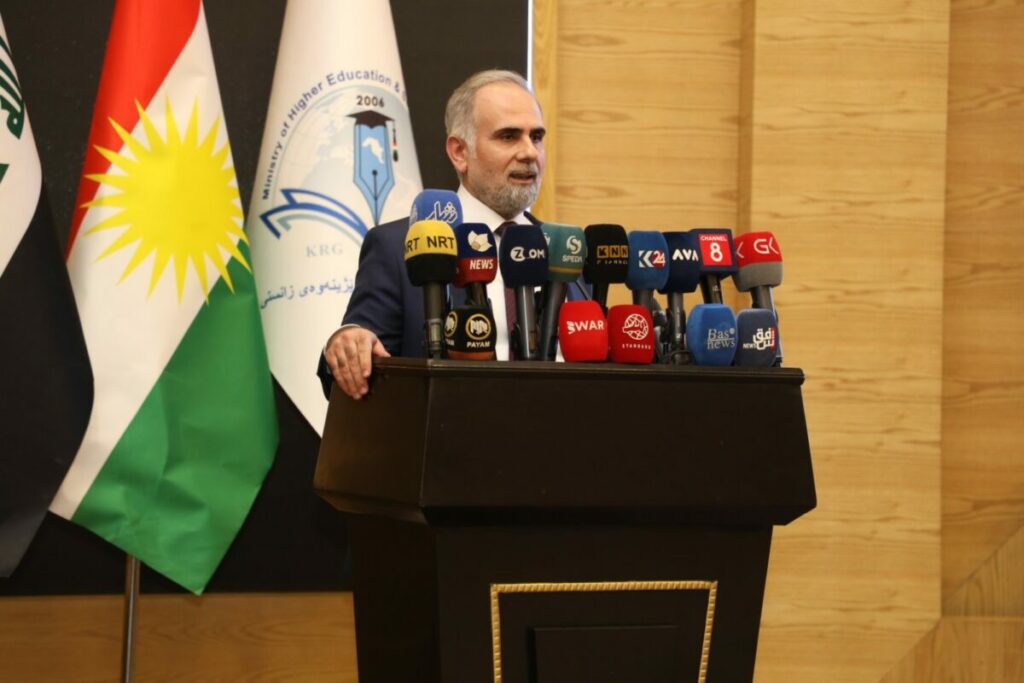
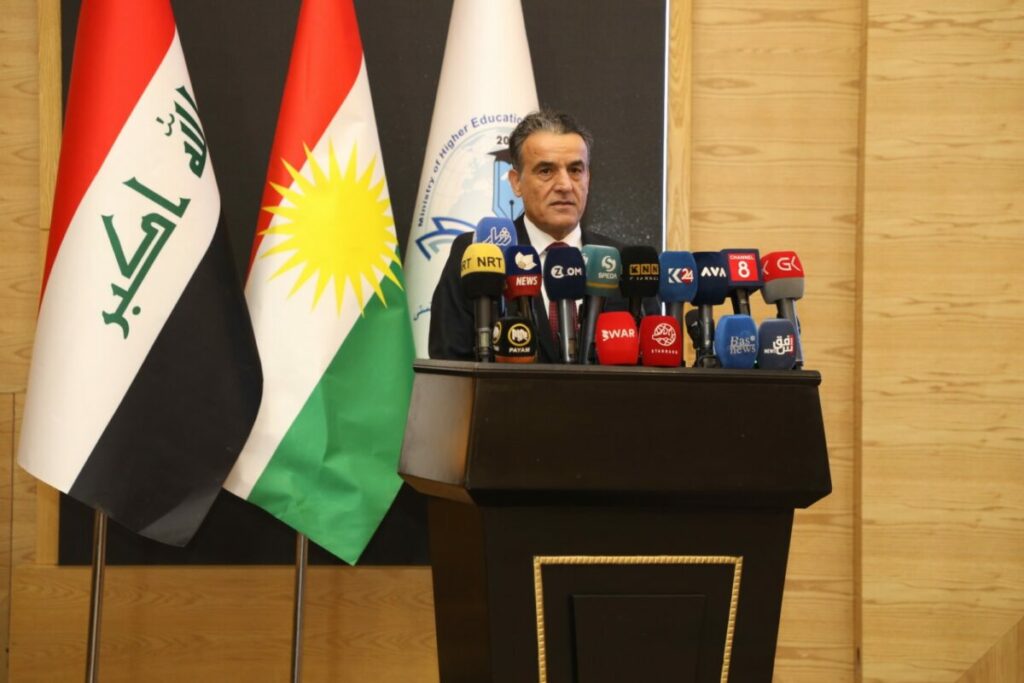
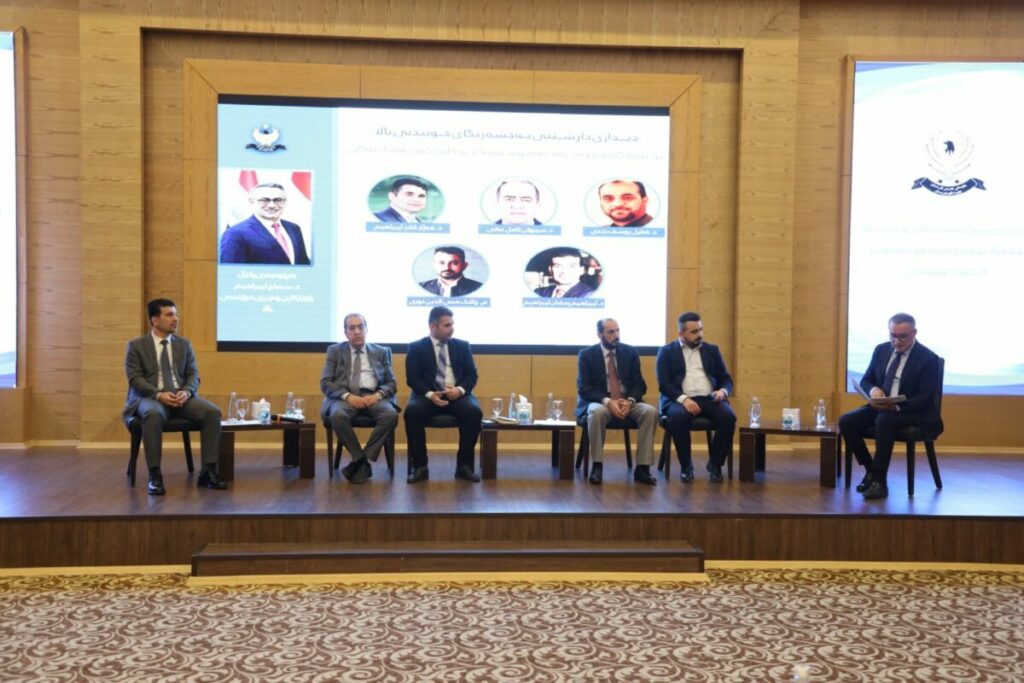
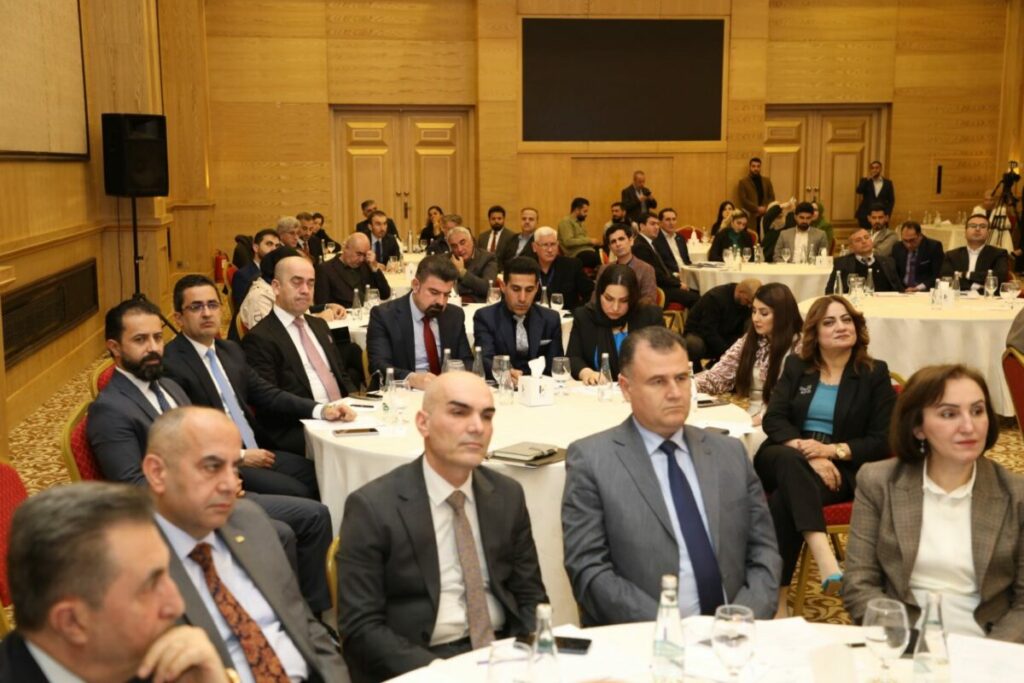
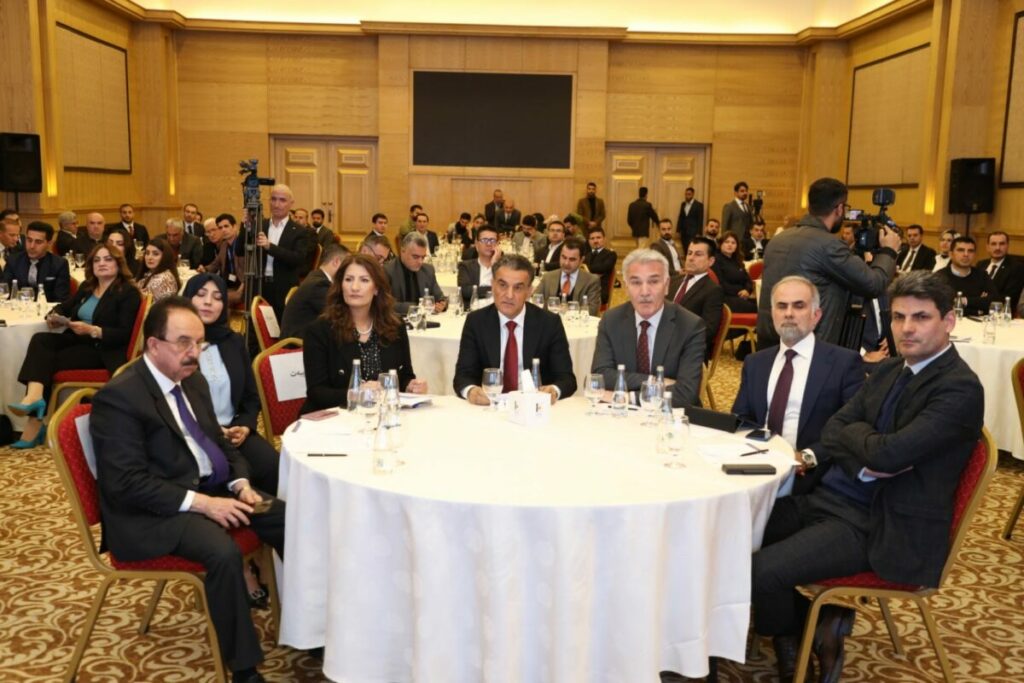
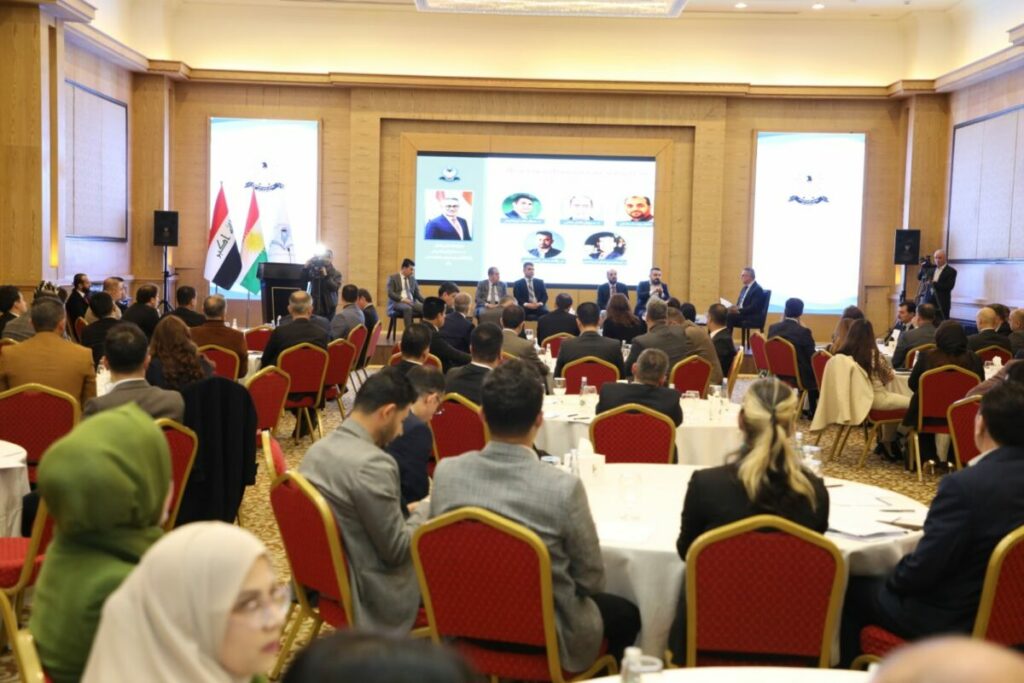
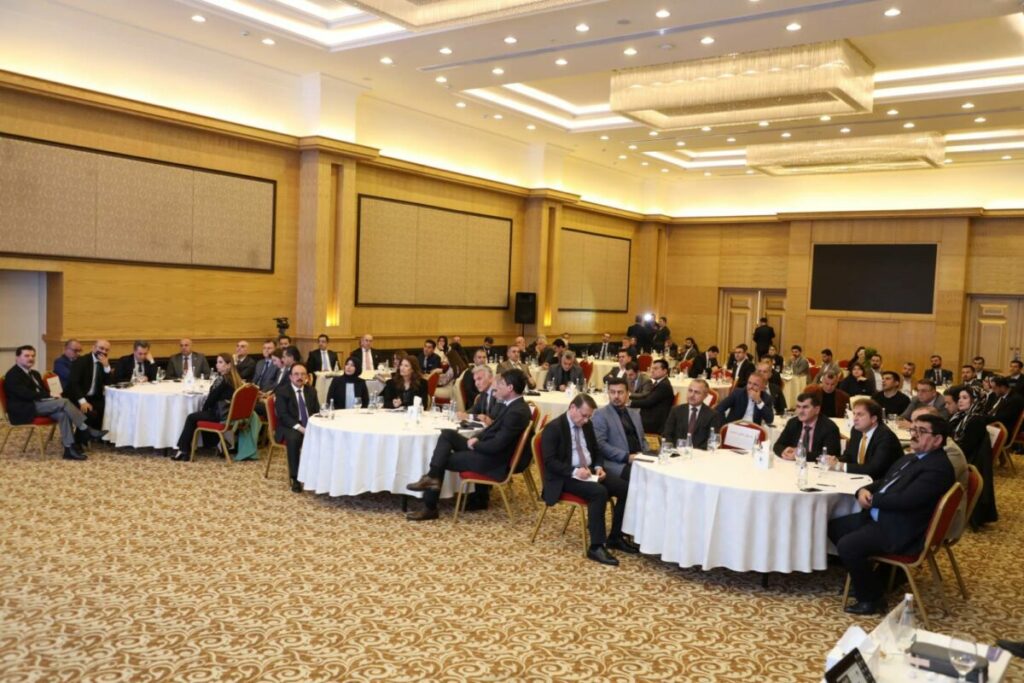
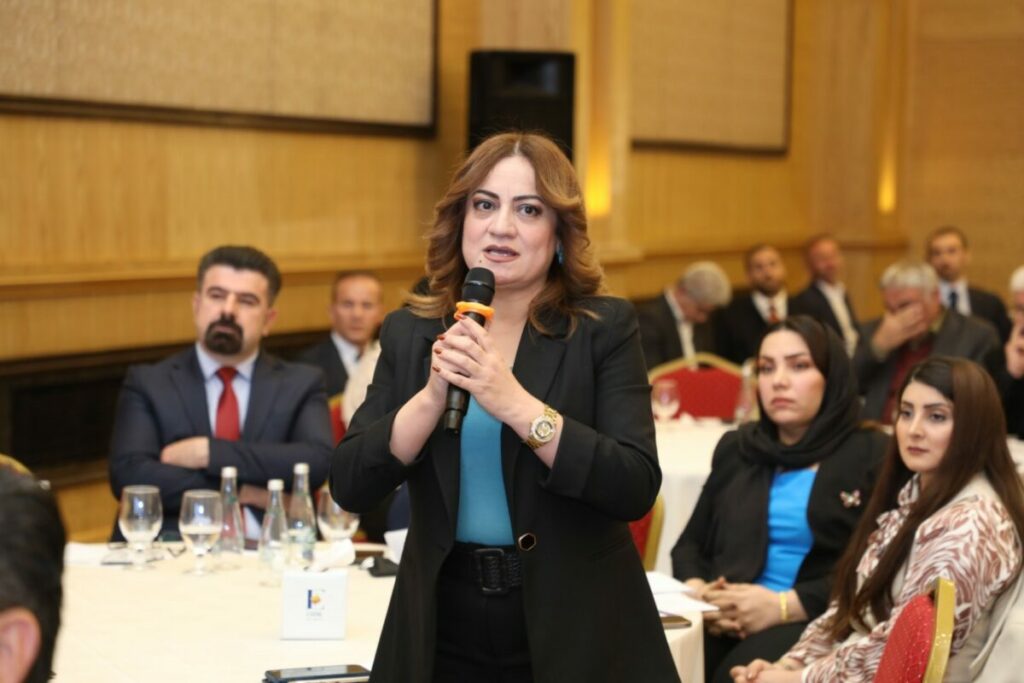
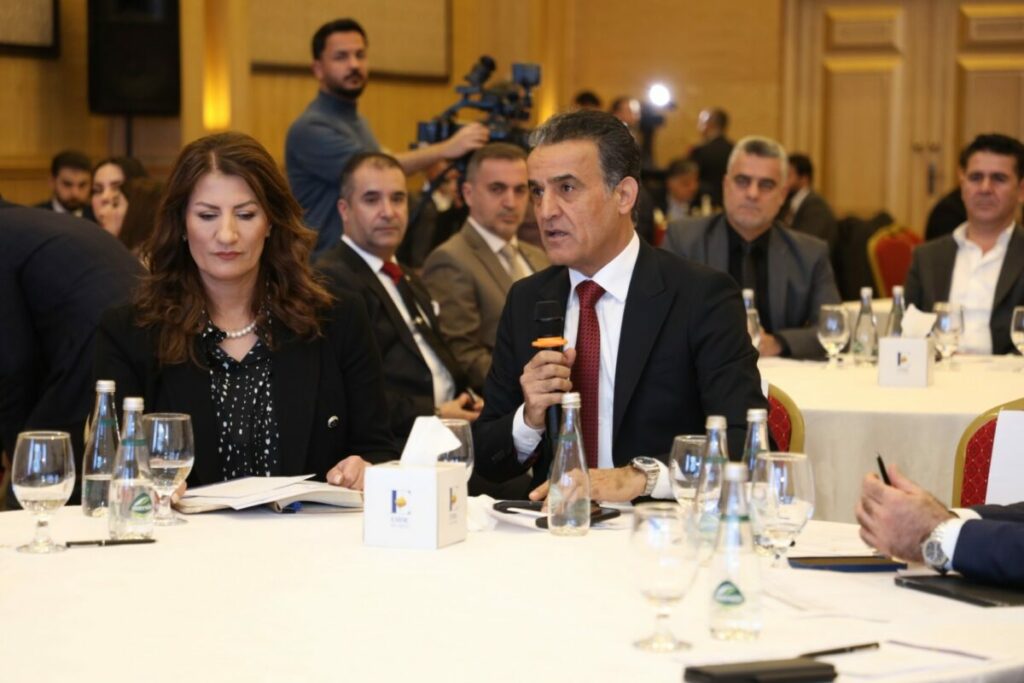
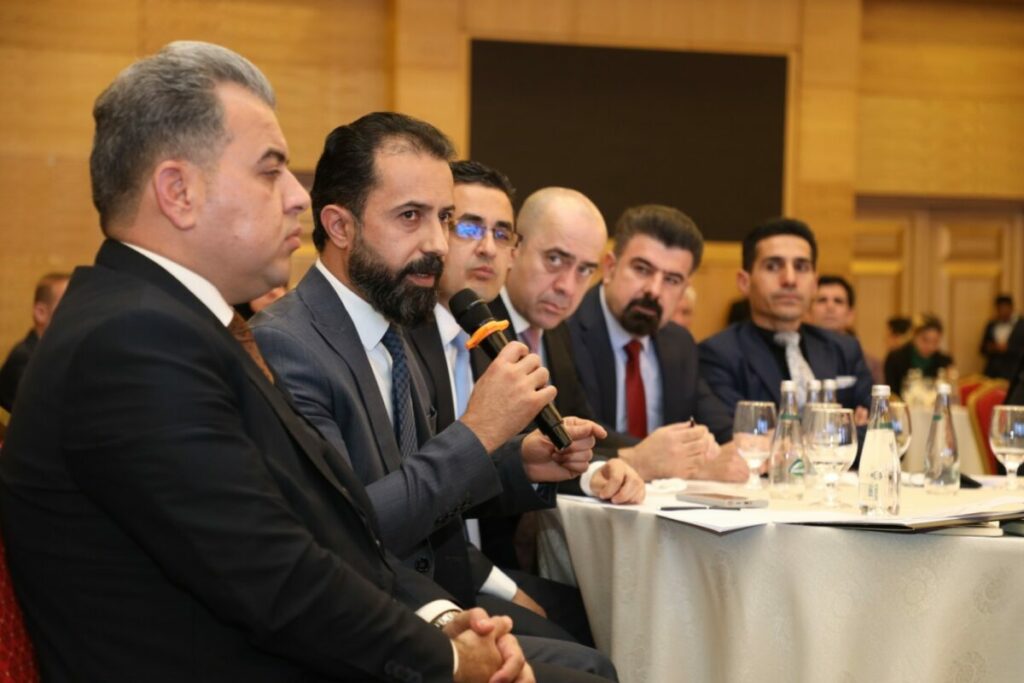
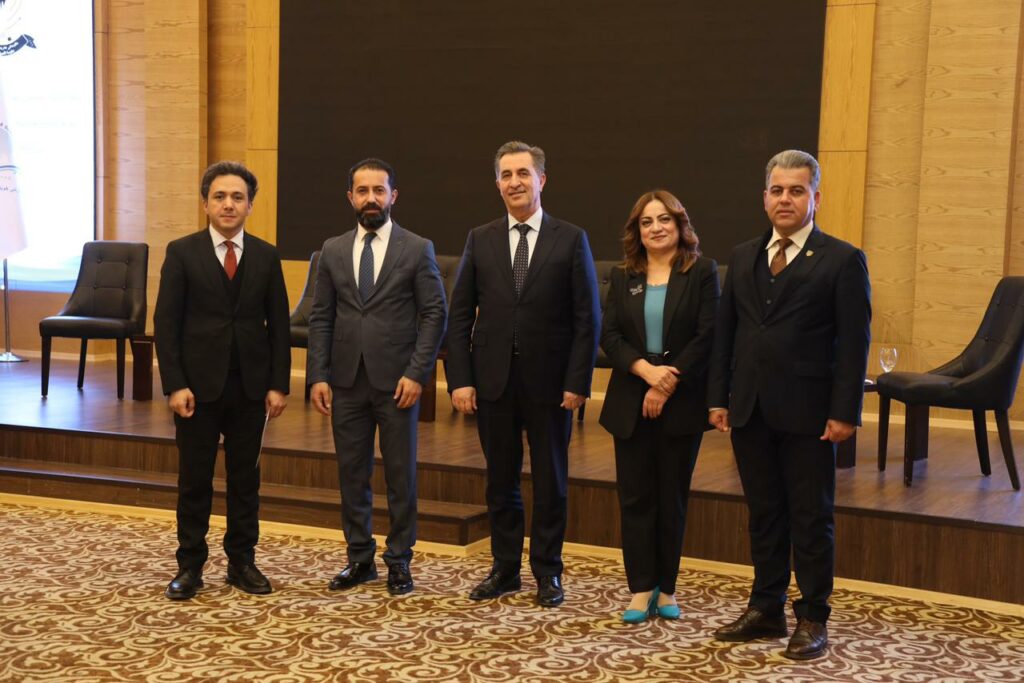
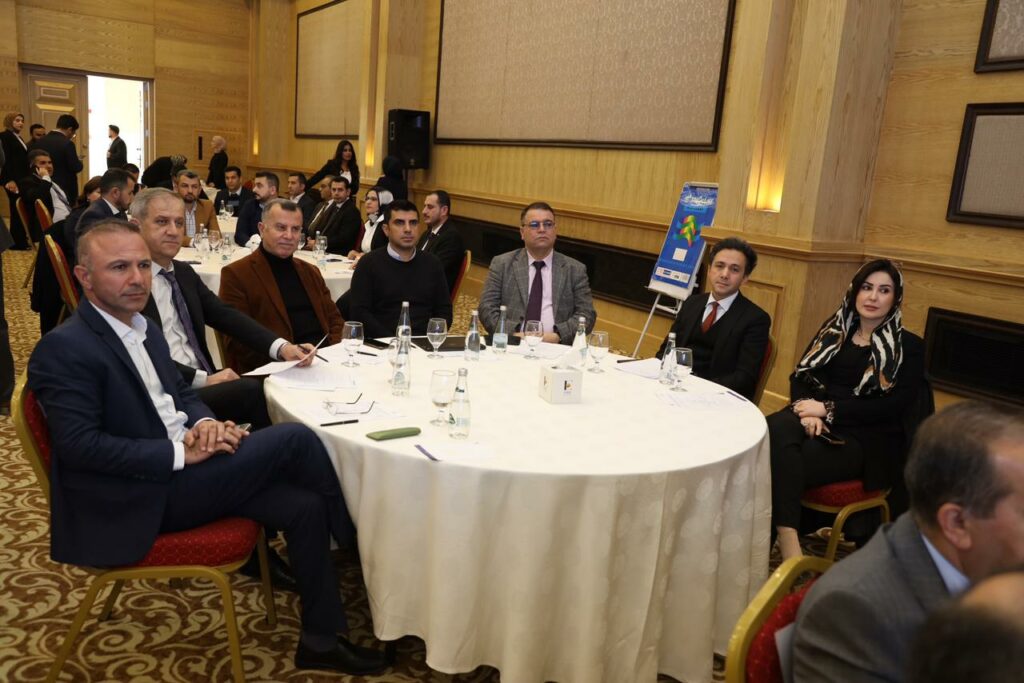
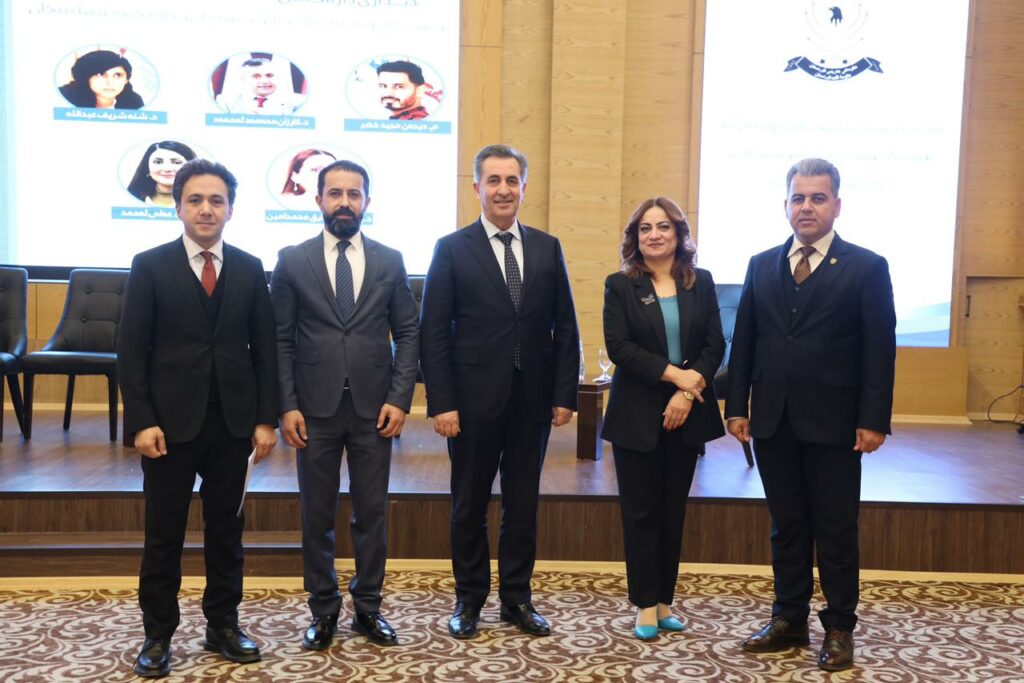
The Dean of Mergasor Technical Institute Participated in a meeting on 22 Feb 2024, with the presence of Mr. Mark Stroh, Consul General of the USA in Erbil, and Ms. Ildiko Hrubos from the U.S. Consulate, alongside sister-college partners Dr. Thad and Dr. Elisa Queenon. In the meeting, they highlighted the three-year sister-college partnership between Erbil Polytechnic University/Mergasor Technical Institute and Porterville College and discussed opportunities to further strengthen the relationship moving forward.
